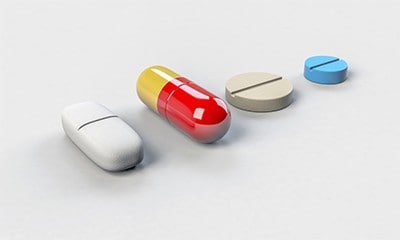Antibiotic Resistance
They can save lives
Antibiotics are powerful medicines that fight bacterial infections. Used properly, antibiotics can save lives. They either kill bacteria or keep them from reproducing. In most cases, your body’s natural defenses can take over from there. Unfortunately, some medications that used to be standard treatments for bacterial infections are now less effective or don’t work at all. When an antibiotic no longer has an effect on a certain strain of bacteria, those bacteria are said to be antibiotic resistant. The fact that bacteria develop resistance to a medication is normal and expected. But the way that medications are used affects how quickly and to what extent resistance occurs. The overuse of antibiotics, especially taking antibiotics even when they’re not the appropriate treatment, promotes antibiotic resistance. According to the Centers for Disease Control and Prevention, up to one-half of antibiotic use in humans is unnecessary or inappropriate.
Not for viral infections
This year, more than two million illnesses will be caused by antibiotic resistance in the U.S. The Centers for Disease Control and Prevention estimates that 23,000 of these illnesses will prove fatal. Antibiotics should only be taken to treat bacterial infections, not viral infections. Strep throat, caused by the bacterium Streptococcus pyogenes, will be treated with an antibiotic. But most sore throats are caused by viruses and will not require the use of antibiotics. A cold, the flu and bronchitis are other viral infections that won’t benefit from using antibiotics. If you take an antibiotic when you actually have a viral infection, the antibiotic attacks bacteria in your body, bacteria that are either beneficial or at least not causing disease. This misdirected treatment can then promote antibiotic-resistant properties in harmless bacteria that can be shared with other bacteria, or create an opportunity for potentially harmful bacteria to replace the harmless ones.
Can change structure
Antibiotic resistance can cause illnesses that were once easily treatable with antibiotics to become dangerous infections, prolonging suffering for children and adults. Antibiotic-resistant bacteria can spread to family members, schoolmates and co-workers. Overuse of antibiotics can promote the development of antibiotic-resistant bacteria. Every time a person takes antibiotics, sensitive bacteria are killed, but resistant bacteria are left to grow and multiply. This is how repeated use of antibiotics can increase the number of drug-resistant bacteria. Bacteria can become resistant to antibiotics through several ways. Some bacteria can “neutralize” an antibiotic by changing it in a way that makes it harmless. Others have learned how to pump an antibiotic back outside of the bacteria before it can do any harm. Some bacteria can change their outer structure so the antibiotic has no way to attach to the bacteria it is designed to kill.
Avoid an infection
Avoiding an infection in the first place is the easiest way to prevent antibiotic resistance. Steering clear of infections will reduce the amount of antibiotics that are prescribed and reduces the likelihood that resistance will develop during treatment. There are a number of ways to prevent the spread of drug-resistant infections. Immunization is one. Another is safe food preparation. All animals carry bacteria in their intestines. Giving antibiotics will kill many bacteria, but resistant bacteria can survive and multiply. When food animals are slaughtered and processed, these resistant bacteria can contaminate the meat or other animal products. Bacteria can also spread to produce irrigated with contaminated water. Improperly handling or consuming inadequately cooked contaminated meat can lead to antibiotic-resistant infections. Proper handwashing and the use of antibiotics as directed can also help prevent resistance.
Antibiotic stewardship
The appropriate use of antibiotics, known in the medical field as antibiotic stewardship, can preserve the effectiveness of current antibiotics and protect people from antibiotic-resistant infections. As a patient, you can help by avoiding asking your health-care provider for an antibiotic when it isn’t necessary. Instead, ask how to treat your symptoms. Be sure that you and your children receive all recommended vaccinations. This includes bacterial infections like diphtheria and whooping cough. Only use antibiotics as prescribed. This means taking the prescribed dosage and completing the entire course of treatment. And never take antibiotics prescribed for someone else. Because antibiotic resistance occurs as part of a natural process in which bacteria evolve, it can be slowed but not stopped. For this reason, we will always need new antibiotics to keep up with resistant bacteria as well as new diagnostic tests to track the development of resistance.
Trusted by thousands of listeners every week, T. Glenn Pait, M.D., began offering expert advice as the host of UAMS’ “Here’s to Your Health” program in 1996. Dr. Pait began working at UAMS in 1994 and has been practicing medicine for over 20 years.
